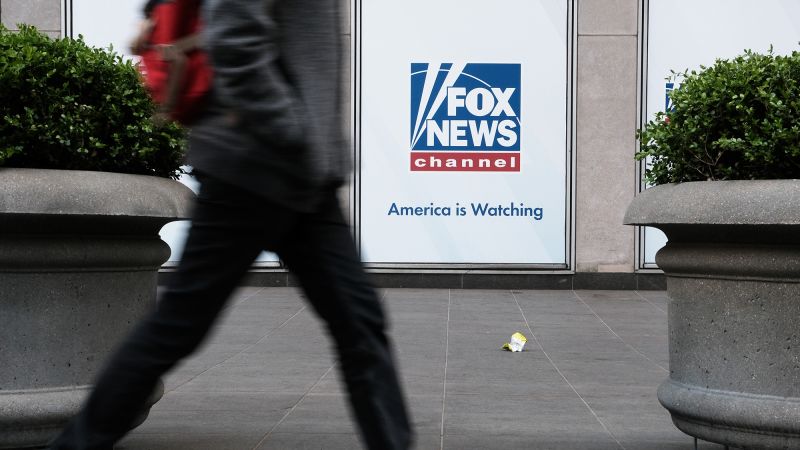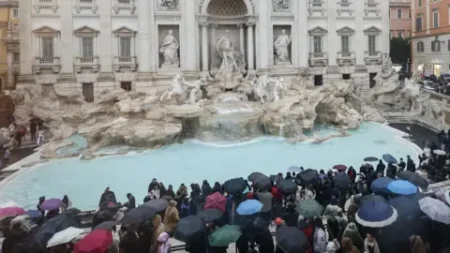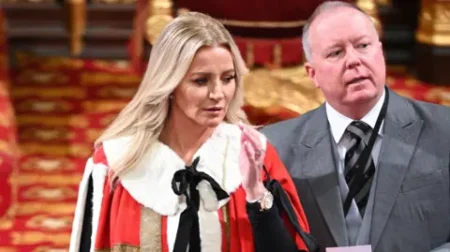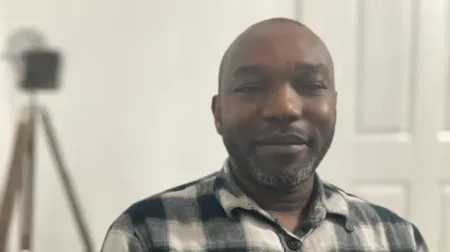In recent political developments, a prominent Democratic member of Congress has vocally challenged the editorial practices of Fox Corp regarding an interview with former President Donald Trump. This scrutiny centers around an edited segment from a June 2024 interview that delves into the sensitive topic of Jeffrey Epstein, the late financier tangled in numerous allegations of sexual abuse. The oversight committee member, Robert Garcia, sent a letter to both Fox Corp’s chairman, Lachlan Murdoch, and Fox News Media’s CEO, Suzanne Scott, demanding accountability for what he perceives as misleading edits that misrepresented Trump’s stance on releasing Epstein-related documents.
The controversy arises from allegations that Fox News omitted significant qualifiers from Trump’s comments during the “Fox & Friends Weekend” segment. In the televised interview, Trump seemed to express absolute support for declassifying Epstein-related files, a stance that appeared to align him with transparency. However, the unedited version presented on a different Fox platform revealed Trump hedging his response, suggesting reservations about the potential impact of releasing such documents on “people’s lives” and alluding to “phony stuff” associated with the Epstein case. The contrasting narratives between the edited and unedited interviews have led to increased scrutiny, particularly given Trump’s ongoing tussle with critics from within his own ranks over his administration’s efforts to inhibit disclosures about Epstein’s well-documented wrongdoings.
In his letter, Garcia implores both Murdoch and Scott to clarify the editorial decisions behind the interview’s presentation and question whether political motivations influenced the network’s choices. He highlights the potential for Fox to have deliberately shielded Trump from any damaging associations with Epstein, referring to the former president’s known ties to the deceased financier. This raises concerns about whether Trump or his affiliates prompted any editorial alterations.
Fox News, in its response to inquiries about the edits, has categorically denied any claims of “selective editing.” The network maintains that modifications made during the interview adhered to standard editorial practices and that the complete response from Trump aired the following day. However, the network’s assertions are undermined by widespread criticism claiming the trimmed version distorted Trump’s nuanced assessment, thereby casting his perspective in a more politically advantageous light.
In the contentious interview, Trump confirmed he would declassify documents related to other incidents such as the 9/11 attacks and the JFK assassination without hesitation. However, regarding whether he would declassify materials related to Epstein, his vacillation was evident. In the edited version, he seemed affirmative, but in the full version, he expressed a more cautious sentiment, revealing his uncertainty about Epstein and the implications of the documents.
Critics have posited that the initial aired segment fundamentally altered how Trump’s perspective was received by the public, stripping away vital context and casting his opinions in a starkly favorable light. This debate over editing ethics draws parallels to previous media engagements, specifically regarding an incident with CBS when Trump claimed “election interference” in a segment involving Vice President Kamala Harris, leading to significant legal fallout for the network.
As a result, other political figures have also weighed in on the issue. Democratic Senators Chuck Schumer and Ed Markey, addressing the Fox edit, declared it misleading and insisted that Fox’s selective editing represented a more significant deviation than any issues spotted in CBS’s handling of similarly contentious interviews. Yet, rather than calling for a parallel investigation into Fox’s actions, the senators urged that the Federal Communications Commission (FCC) ought to reevaluate its approach toward the media landscape and halt any interference with independent journalism.
The ongoing scrutiny of Fox News and its editorial choices sheds light on broader questions regarding media accountability and political interpretation of news coverage, amid a climate rife with political polarization and concerns about transparency. The implications of such editorial decisions resonate far beyond isolated incidents, underpinning larger dialogues about the integrity of media institutions, the responsibilities of journalists, and the nuanced dynamics between public figures and their portrayal in the modern media landscape.











